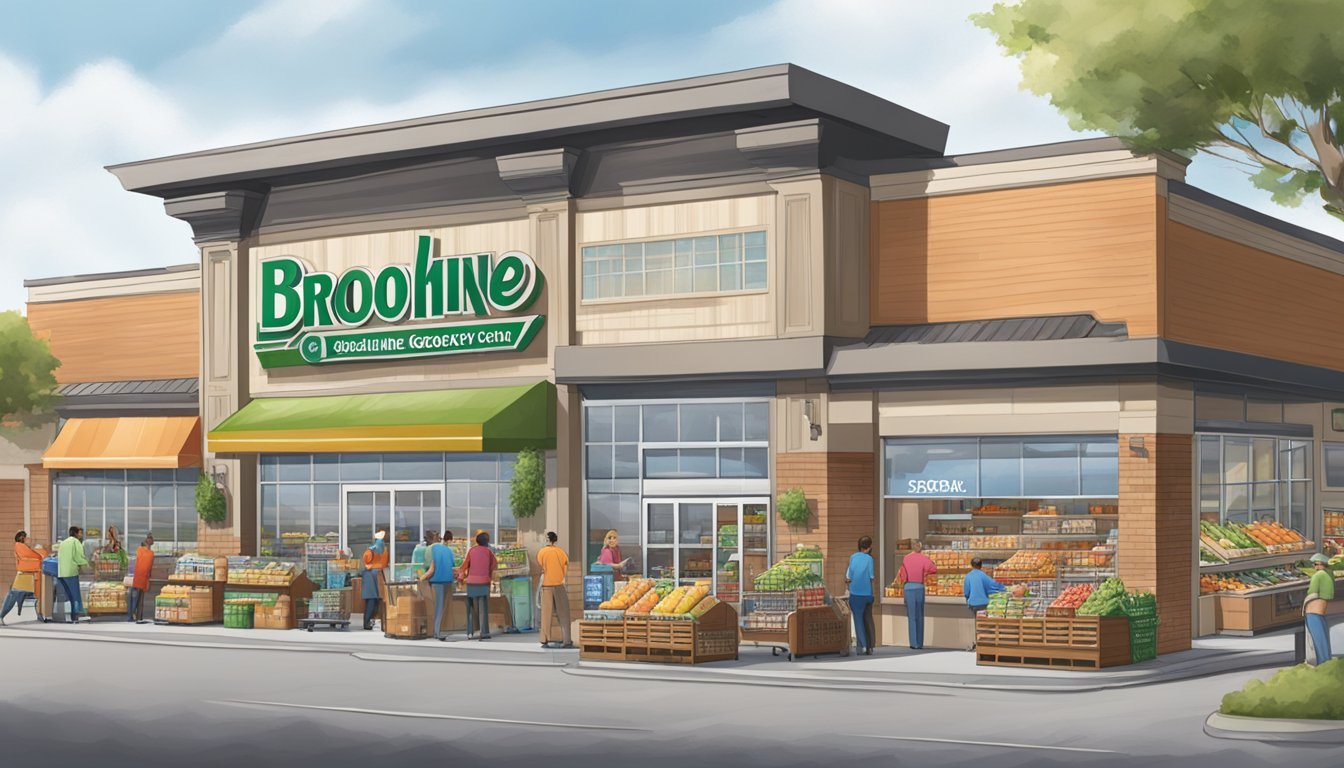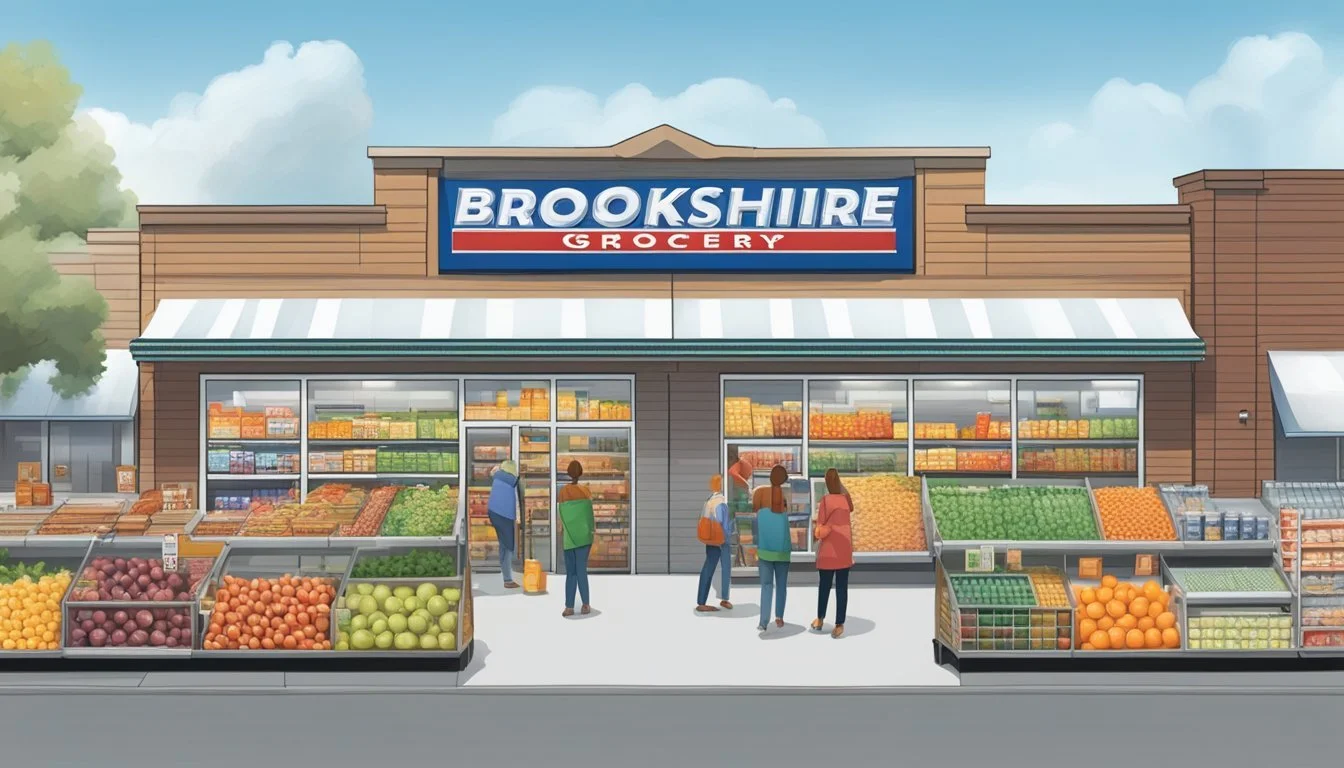Is Brookshire Grocery Company Cheaper Than Costco?
A price comparison of two popular retailers
When comparing grocery prices, shoppers often wonder how Brookshire Grocery Company stacks up against retail giant Costco. Both retailers have loyal customer bases and offer competitive pricing on a variety of products.
While Costco generally offers lower prices on bulk items, Brookshire Grocery Company may be more cost-effective for smaller households or those seeking specific weekly deals. Costco's membership model and focus on large quantities can lead to significant savings for families willing to buy in bulk, but Brookshire's regular sales and promotions can provide better value for shoppers who prefer smaller quantities or more frequent trips.
Brookshire Grocery Company operates over 200 stores across Texas, Louisiana, Arkansas, and Oklahoma. The company's regional focus allows it to tailor its offerings and pricing to local markets, potentially giving it an edge in certain product categories. Costco, with its national presence and buying power, often secures lower prices on popular national brands and its own Kirkland Signature line.
Overview of Brookshire Grocery Company
Brookshire Grocery Company is a regional supermarket chain with a strong presence in the southern United States. The company operates over 200 stores across multiple brands and has a rich history spanning nearly a century.
History and Background
Wood T. Brookshire founded Brookshire Grocery Company in 1928 with a single store in Tyler, Texas. The company remained family-owned and operated as it expanded throughout the 20th century. Brookshire's growth focused on serving communities in Texas, Arkansas, and Louisiana.
The company's commitment to customer service and community involvement helped fuel its success. Brookshire Grocery Co. gradually expanded its footprint by opening new stores and acquiring smaller regional chains. This steady growth allowed the company to maintain its family-owned status while competing with larger national retailers.
Brookshire Grocery Co. Today
BGC now operates more than 200 retail grocery stores across four states: Texas, Louisiana, Arkansas, and Oklahoma. The company employs thousands of workers and maintains four distribution centers to support its operations.
Brookshire Grocery Co. remains headquartered in Tyler, Texas, where it was founded. The company continues to be family-owned and operated, with descendants of Wood T. Brookshire in leadership roles. This structure allows BGC to maintain its community-focused approach while adapting to changing market conditions.
Store Brands and Partnerships
Brookshire Grocery Co. operates stores under several distinct brands:
Brookshire's: The company's flagship brand
Super 1 Foods: A discount grocery format
Spring Market: Smaller format stores in rural areas
FRESH by Brookshire's: Upscale stores with specialty offerings
These diverse brands allow BGC to serve various customer segments and community needs. The company has also formed partnerships with other retailers and suppliers to enhance its product offerings and compete effectively in the grocery market.
BGC's private label products provide value-oriented options for customers across its store brands. The company continues to innovate and adapt its store formats and product lines to meet evolving consumer preferences and maintain its competitive position in the regional grocery market.
Costco Wholesale Corporation Overview
Costco Wholesale Corporation is a leading membership-only warehouse club retailer known for its unique business model and high-quality products. The company operates a global network of warehouse stores, offering a wide range of merchandise at competitive prices.
Costco's Business Model
Costco's business model revolves around selling bulk quantities of products at discounted prices to its members. The company keeps costs low by limiting product selection, using efficient store layouts, and minimizing advertising. Costco generates a significant portion of its profit from membership fees, allowing it to maintain slim margins on merchandise.
This approach enables Costco to offer competitive prices while maintaining profitability. The company's focus on efficiency extends to its supply chain, with streamlined logistics and direct relationships with suppliers.
Product Range and Quality
Costco offers a diverse array of products, including groceries, electronics, home goods, and clothing. The company is renowned for its high-quality merchandise, often featuring premium brands at lower prices than traditional retailers.
Costco's private label, Kirkland Signature, is known for its quality and value. This brand spans various categories, from food and beverages to household items and clothing.
The company also provides services such as optical, pharmacy, and travel booking. Costco's product selection is carefully curated, with a focus on items that offer the best value to members.
Membership and Warehouse Layout
Costco operates on a membership-based model, offering different tiers of membership to individuals and businesses. Members gain access to Costco's warehouses and online shopping platform.
The warehouse layout is designed for efficiency, with a no-frills approach that keeps overhead costs low. Products are often displayed on pallets or in their original shipping containers.
Costco's warehouses typically feature wide aisles and a logical flow, making it easy for members to navigate. The layout encourages browsing, with rotating inventory and limited-time offers creating a "treasure hunt" shopping experience.
Comparative Analysis of Prices
Brookshire Grocery Company and Costco offer distinct pricing structures and product selections. A closer look at specific categories reveals key differences in cost and value between these retailers.
Price Benchmarks
Brookshire's prices typically align with regional grocery averages. Costco's membership model allows for bulk purchasing at discounted rates. A 2022 study found Walmart prices averaged 6% lower than Costco on a cost-per-unit basis, suggesting Brookshire's may have higher prices than Costco on many items.
Sam's Club, owned by Walmart, often beats both Brookshire's and Costco on price due to Walmart's massive buying power. This indicates Brookshire's faces stiff competition in the low-price arena.
Grocery and Household Items
Costco excels in bulk pricing for non-perishables and household goods. A 24-pack of eggs at Costco costs $1.74 per dozen, lower than many competitors. Almond milk in 12-quart packages offers significant savings.
Brookshire's strengths lie in weekly sales and promotions on everyday items. Their flyer often features competitive deals on produce, meat, and dairy products.
Item Brookshire's Costco Eggs (dozen) Variable $1.74 Almond Milk (quart) Higher Lower
Quality vs. Savings
Brookshire's emphasizes fresh, local produce and meats. This focus on quality may result in higher prices for some items. Their smaller store format allows for a curated selection of premium products.
Costco balances quality and savings through its Kirkland Signature brand. These private-label items often match or exceed name-brand quality at lower prices. Costco's strict quality standards apply to all products, including fresh foods.
Both stores offer savings opportunities. Brookshire's provides traditional grocery store sales and loyalty programs. Costco's annual membership fee grants access to consistently low prices across all departments.
Business Strategies and Operations
Brookshire Grocery Company and Costco employ distinct approaches to their business operations. These strategies shape their distribution networks, customer service philosophies, and engagement with employees and communities.
Distribution and Supply Chain
Brookshire Grocery Company operates four distribution centers to supply its network of over 200 stores across Texas, Louisiana, Arkansas, and Oklahoma. This regional focus allows for efficient inventory management and quick restocking of shelves. Costco, in contrast, maintains a vast global network of warehouses and distribution centers to support its international presence. Both companies prioritize streamlined supply chains to keep costs low and maintain product freshness.
Brookshire's smaller scale enables more localized inventory control, while Costco's bulk purchasing power gives it significant leverage with suppliers.
Customer Service Models
Brookshire emphasizes personalized service in clean stores with a wide product range. Their website offers online shopping options for added convenience. Costco's model revolves around a membership-based system, providing bulk products at discounted prices. Their warehouses offer a no-frills shopping experience with limited product selection but significant savings.
Both companies prioritize customer satisfaction but through different means. Brookshire focuses on traditional grocery store amenities, while Costco aims to provide value through bulk purchasing and exclusive member benefits.
Employee and Community Engagement
Brookshire Grocery Company prides itself on its employee-centric culture and community involvement. The company invests in employee development programs and maintains strong ties to local communities through various initiatives. Their core values emphasize teamwork and service.
Costco is known for its employee-friendly policies, offering competitive wages and benefits. The company's approach to community engagement often involves charitable donations and partnerships with local organizations.
Both retailers recognize the importance of a satisfied workforce and positive community relations in building customer loyalty and maintaining a strong market position.
Market Presence and Competition
Brookshire Grocery Company has established a strong regional presence in the southern United States, particularly in Texas. The company faces competition from larger national chains as well as other regional players in the grocery market.
Regional and National Reach
Brookshire Grocery Company operates primarily in Texas, Louisiana, and Arkansas. Its headquarters are located in Tyler, Texas. The company has a significant presence in East Texas, where it began operations.
Brookshire's focuses on serving smaller cities and rural areas, often in markets overlooked by larger national chains. This strategy has allowed the company to build customer loyalty in its core regions.
While not matching the national footprint of giants like Walmart or Kroger, Brookshire's has steadily expanded its reach within its target markets.
Competitive Landscape Analysis
In the competitive grocery industry, Brookshire's faces pressure from several directions. Major national chains like Walmart, Kroger, and Target compete on price and selection. Regional players such as WinCo Foods and Albertsons provide strong competition in specific markets.
Brookshire's differentiates itself through:
Focus on customer service
Community involvement
Fresh, high-quality produce
Local product offerings
The company's smaller size compared to national chains allows for more flexibility in tailoring stores to local preferences. This helps Brookshire's compete against larger rivals in its core markets.
Brookshire's also faces competition from discount chains like Grocery Outlet in some areas. The company must balance competitive pricing with maintaining its reputation for quality and service.
Consumer Experience and Loyalty
Brookshire Grocery Company and Costco prioritize customer satisfaction through different approaches. Their strategies focus on creating positive shopping environments and offering rewards programs to build loyalty.
Shopping Environment
Brookshire Grocery Company emphasizes a personalized shopping experience. Their stores feature friendly staff and a community-oriented atmosphere. Customers often appreciate the local touch and familiarity with employees. The company invests in clean, well-organized stores to enhance the shopping experience.
Costco takes a different approach with its warehouse-style layout. The no-frills environment allows for lower prices. Customers enjoy the treasure hunt aspect of finding new products. Costco's food court and free samples add value to the shopping trip.
Both retailers maintain high standards for product quality and freshness, particularly in perishable departments.
Rewards and Incentives
Brookshire Grocery Company offers a loyalty program called "Thank You Card." Customers earn points on purchases, which translate to discounts and personalized offers. The program provides digital coupons and rewards tailored to individual shopping habits.
Costco's primary loyalty incentive is its membership model. The annual fee grants access to wholesale prices and exclusive products. Executive members earn 2% cash back on most purchases. Costco's Kirkland Signature brand offers high-quality items at competitive prices, further incentivizing loyalty.
Both companies provide fuel rewards programs, allowing customers to save on gas purchases. Costco often offers lower fuel prices, while Brookshire's program typically involves points accumulation for discounts.
Financial Health and Company Growth
Brookshire Grocery Company has demonstrated steady financial performance and strategic expansion in recent years. The company's revenue growth, profitability, and new store openings reflect its strong position in the regional grocery market.
Revenue and Profits
Brookshire Grocery Company's annual revenue exceeds $2.7 billion. This places the company firmly in the mid-sized grocery chain category. With over 14,000 employees, Brookshire's generates approximately $192,843 in revenue per employee.
The company's financial health appears robust, allowing for continued investment in operations and expansion. While specific profit figures are not publicly disclosed, Brookshire's private ownership structure suggests a focus on long-term stability rather than short-term earnings reports.
Brookshire's competes with larger national chains and smaller regional grocers. Its revenue surpasses $500 million annually, indicating significant market presence in its operating regions.
Expansion and New Store Openings
Brookshire Grocery Company operates more than 200 retail grocery stores across four states: Texas, Louisiana, Arkansas, and Oklahoma. This regional focus allows the company to tailor its offerings to local preferences and maintain strong community ties.
The company's expansion strategy has been measured and strategic. New store openings have targeted underserved markets within its existing footprint. This approach minimizes logistical challenges and leverages established supply chains.
Brookshire's also operates four distribution centers, supporting efficient inventory management and reducing costs. This infrastructure enables the company to maintain competitive pricing while ensuring product availability across its store network.
Sustainability and Social Responsibility
Brookshire Grocery Company and Costco both demonstrate commitments to sustainability and social responsibility through various initiatives. Their efforts focus on environmental stewardship and community engagement.
Environmental Policies
Brookshire Grocery Company emphasizes environmentally friendly practices in its operations. The company has implemented energy-efficient lighting and refrigeration systems in its stores to reduce electricity consumption. They also promote recycling programs and work to minimize food waste through donation partnerships with local food banks.
Costco has made significant strides in sustainability as well. The company has installed solar panels on many of its warehouses to generate clean energy. They've also focused on reducing packaging waste and increasing the use of recyclable materials in their products. Costco's commitment extends to sourcing sustainable seafood and promoting responsible farming practices among their suppliers.
Community and Philanthropy
Brookshire Grocery Company is deeply rooted in community service. They support local charities and sponsor youth programs in the areas they serve. The company organizes food drives and provides disaster relief assistance during times of crisis in their communities.
Costco's philanthropic efforts are similarly impactful. They partner with Children's Miracle Network Hospitals and contribute to local education initiatives. The company also supports veterans through hiring programs and donations to military-focused charities.
Both retailers prioritize employee well-being, offering competitive wages and benefits. This focus on their workforce translates to better customer service and stronger community ties.









